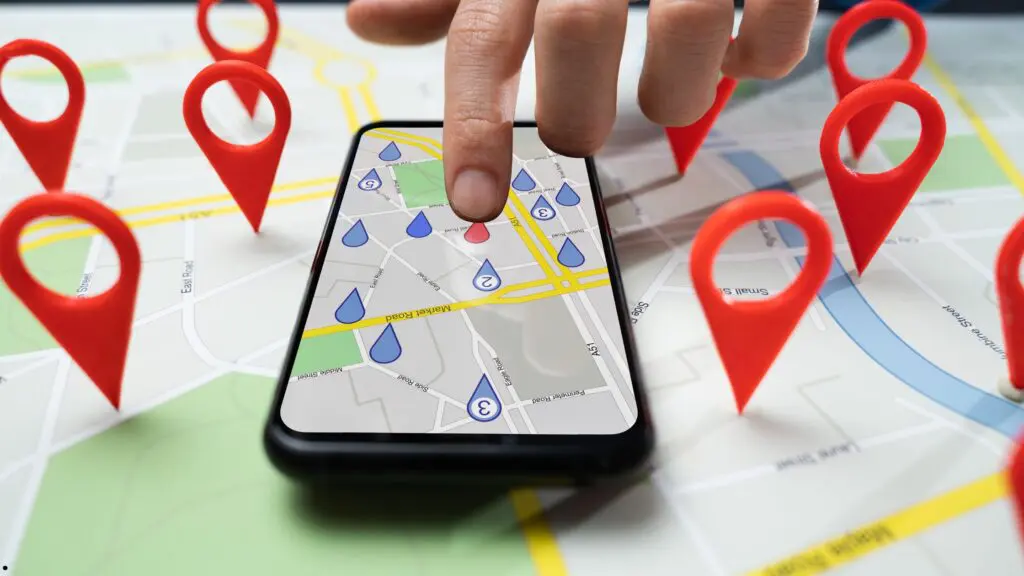In today’s digital age, the majority of people turn to Google when they need to find services or products, including legal representation.
For local businesses, this means that being visible in search engine results is essential to generating new business. While many businesses invest heavily in pay-per-click (PPC) advertising and other forms of digital marketing, one of the most effective and cost-efficient strategies remains Local Search Engine Optimization (SEO).
Local SEO focuses on optimizing your business’ online presence to attract local clients, making it a powerful tool to stand out in their communities and generate high-quality leads.
Why Local SEO Is the Best Source of Leads
Local SEO is particularly effective because it targets potential clients who are actively searching for services in their area. When someone searches for “personal injury lawyer near me” or “divorce attorney [city],” Google displays a “local map pack” at the top of the search results page.
This map pack features a selection of local businesses relevant to the search, complete with business names, ratings, and contact information. This prime real estate on the search results page is invaluable for driving traffic and generating leads.
Local SEO is the best source of leads for several reasons:
High Intent: People searching for local services are often ready to hire. This means they are further along in the decision-making process, making them more likely to convert into clients.
Increased Visibility: The local map pack appears above the organic search results, giving you a prominent position on the page. This visibility is crucial, as studies show that the majority of clicks go to businesses that appear in the top positions.
Trust and Credibility: The map pack displays important information such as your address, phone number, operating hours, and client reviews. Positive reviews and a high rating can significantly increase your credibility, making potential clients more likely to contact your business.
Cost-Effectiveness: Unlike PPC advertising, which requires continuous investment, Local SEO provides long-term benefits with relatively low ongoing costs. Once your site is optimized for local search, it can continue to generate leads without the need for constant ad spending.
How Local SEO Works
Local SEO involves optimizing your online presence to ensure that your business appears in local search results. This includes your website, Google My Business (GMB) profile, and other online directories. The goal is to make it easy for potential clients to find and contact your business.
Key components of Local SEO include:
Google My Business Optimization: Your GMB profile is the cornerstone of your local SEO strategy. It’s essential to ensure that your profile is complete and up-to-date, including your business name, address, phone number, business hours, and services offered. Adding high-quality photos, collecting client reviews, and posting regular updates can also boost your visibility.
Local Keywords: Use keywords that reflect your services and location, such as “family law attorney in [city]” or “criminal defense lawyer near [neighborhood].” These keywords should be incorporated naturally into your website’s content, meta descriptions, and titles.
NAP Consistency: Ensure that your business Name, Address, and Phone number (NAP) are consistent across all online listings. Inconsistent information can confuse search engines and potential clients, negatively impacting your local search rankings.
Local Citations: List your business in reputable online directories, such as Yelp, Avvo, and local business directories. These citations help build authority and improve your local search rankings.
Reviews and Ratings: Encourage satisfied clients to leave positive reviews on your GMB profile and other review platforms. A high rating and positive feedback not only improve your ranking but also build trust with potential clients.
Localized Content: Create content that addresses legal issues relevant to your local community. For example, a blog post on “Understanding Property Division Laws in [City]” can attract local clients searching for information on that topic.
Example: How a Law Firm Uses the Map Pack to Generate Leads
Let’s take a look at how a fictional law firm, “Davis & Johnson Law,” uses Local SEO to generate leads through the local map pack.
The Situation: Davis & Johnson Law is a small personal injury law firm based in Denver, Colorado. Despite providing excellent service, the firm struggles to attract new clients because it is overshadowed by larger, more established firms in the area. The partners decide to invest in a local SEO strategy to improve their visibility and generate more leads.
Local SEO Strategy Implementation:
- Google My Business Optimization:
- The firm ensures that their GMB profile is fully optimized. They update their business hours, add a detailed description of their services (e.g., car accidents, slip and falls, workplace injuries), and upload high-quality photos of their office and staff.
- They also include a link to their website and set up a custom “Call Now” button to make it easy for potential clients to contact them directly.
- Building Local Citations:
- Davis & Johnson Law lists their firm in local business directories, such as the Denver Chamber of Commerce website, as well as legal-specific directories like Avvo and FindLaw. They ensure that their NAP information is consistent across all listings.
- Generating Reviews:
- The firm implements a review generation strategy, encouraging satisfied clients to leave reviews on their GMB profile. They send follow-up emails with a link to their profile, asking for feedback.
- Within a few months, they accumulate over 50 positive reviews, with an average rating of 4.8 stars. This significantly boosts their credibility and helps improve their ranking in the local map pack.
- Creating Localized Content:
- The firm publishes blog posts on topics relevant to the Denver area, such as “What to Do After a Car Accident in Denver” and “Understanding Colorado’s Comparative Fault Law.” They also create pages specifically targeting nearby neighborhoods and suburbs, such as “Personal Injury Lawyer in Aurora, CO.”
- This localized content helps attract visitors who are searching for legal information specific to their area, further boosting the firm’s local search rankings.
- Ongoing Engagement:
- The firm posts regular updates on their GMB profile, including information about recent case wins, community involvement, and legal tips. This activity signals to Google that the business is active and engaged, which can improve rankings.
The Results: Within six months, Davis & Johnson Law begins appearing in the top three positions of the local map pack for several high-traffic keywords, such as “personal injury lawyer Denver” and “car accident attorney near me.” This increased visibility leads to a significant boost in phone calls and inquiries. The firm sees a 60% increase in new client consultations, with many clients mentioning that they found the firm through a Google search.
Best Practices to Succeed with Local SEO
To replicate the success of Davis & Johnson Law, here are some best practices that your business can follow:
Optimize Your Google My Business Profile: Make sure all your information is accurate and complete. Use relevant keywords in your business description and services section, and upload high-quality photos that showcase your business.
Encourage and Manage Reviews: Positive reviews are a critical ranking factor for local SEO. Encourage satisfied clients to leave reviews and respond to all reviews, both positive and negative, in a professional manner.
Create Location-Specific Content: Write blog posts, FAQs, and service pages that target specific locations within your service area. Use local keywords naturally in your content.
Build Local Citations: Get your business listed in local business directories and legal-specific directories. Ensure your NAP information is consistent across all platforms.
Engage with Your Community: Participate in local events, sponsor community activities, and share these efforts on your GMB profile and social media. This can improve your local presence and attract more attention to your business.
Monitor and Adapt: Regularly track your local SEO performance using tools like Google Analytics and Google Search Console. Monitor your rankings, traffic, and leads to identify what’s working and where you can improve.
Conclusion
Local SEO is an indispensable tool for businesses looking to generate leads in competitive markets. By optimizing your online presence for local searches, you can increase your visibility, attract high-intent clients, and establish your business as a trusted authority in your community.
As the example of Davis & Johnson Law demonstrates, a well-executed local SEO strategy can significantly boost your firm’s lead generation and client acquisition efforts. By following best practices and staying engaged with your local community, your law firm can dominate the local map pack and achieve sustainable growth in an increasingly competitive digital landscape.



